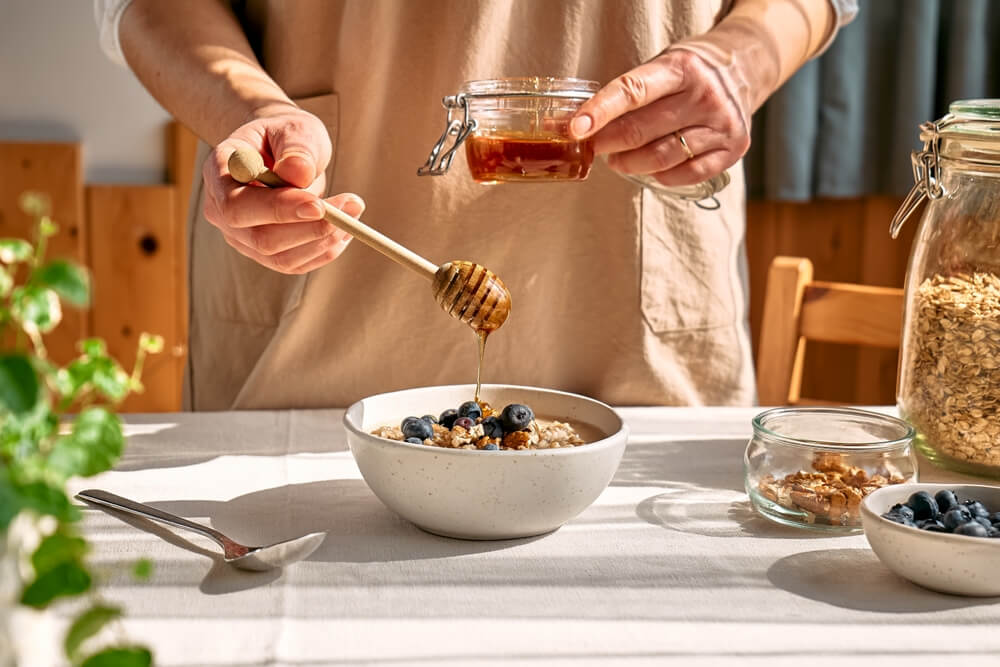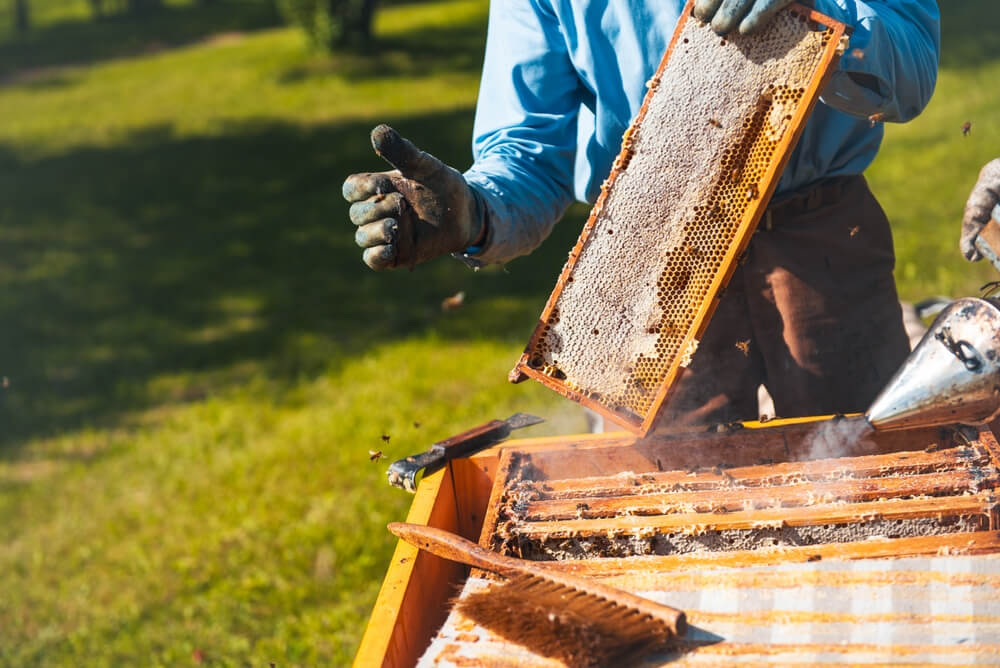
The question of whether honey is vegan has sparked considerable debate within the vegan community, reflecting broader discussions about ethical eating and dietary choices. At the heart of this debate lies the definition of veganism itself, which generally excludes all animal products to avoid exploitation and harm to animals. For many vegans, this extends to honey, as it is produced by bees.
Those who argue that honey is not vegan point out that bees are often subjected to practices that can be harmful or exploitative. Commercial beekeeping can involve manipulating hives in ways that may stress or harm bees, such as clipping queen bee wings or replacing their honey with sugar substitutes. These practices contradict the ethical principles underpinning a vegan diet.
On the other side of the debate, some individuals believe that consuming honey can align with a compassionate lifestyle if it is sourced from small-scale beekeepers who prioritize bee welfare. They argue that supporting these practices can contribute positively to local ecosystems and biodiversity.
Whether one considers honey part of a vegan diet depends on personal ethics and beliefs about animal welfare and environmental impact. As with many aspects of ethical eating, it’s essential for individuals to research and make informed decisions based on their values.
What is Honey and How is it Produced?
Honey is a remarkable natural substance that has fascinated humans for centuries. But have you ever wondered how honey is made? The process begins with bees, the industrious insects that play a crucial role in honey production. Bees collect nectar from flowers using their long, tube-like tongues and store it in their “honey stomachs.” Once they return to the hive, they pass the nectar to other worker bees through regurgitation. These bees then chew the nectar, breaking down its complex sugars into simple ones.
As this process continues, the nectar gradually transforms into honey. It is then deposited into wax cells within the hive’s honeycomb structure. To further concentrate and preserve it, bees fan their wings over these cells to evaporate excess water from the mixture.
Bee farming or apiary practices are essential for maintaining healthy bee populations and ensuring efficient honey production. Beekeepers manage hives by providing optimal conditions for bee colonies to thrive, such as protecting them from pests and diseases and ensuring access to diverse floral resources.
Honey production is an intricate process involving both natural bee behaviors and human-managed apiary practices. Understanding how honey is made not only highlights the importance of bees in our ecosystem but also underscores why sustainable bee farming is vital for continuing this age-old tradition of harvesting nature’s sweet gift.
Why Some Vegans Avoid Honey

When discussing the ethical considerations surrounding honey production, it’s important to understand why some vegans choose to avoid this sweet substance. The primary concern lies in the ethical issues with honey related to animal welfare in beekeeping and the potential exploitation of bees.
Bees are often seen as vital contributors to our ecosystem, responsible for pollinating a significant portion of the world’s crops. However, commercial beekeeping practices can sometimes prioritize profit over the well-being of these industrious insects. For instance, some beekeepers employ methods that may harm bees, such as clipping the wings of queen bees to prevent them from leaving the hive or replacing their natural diet with sugar substitutes after harvesting honey.
The exploitation of bees also raises concerns about their treatment and living conditions. In large-scale operations, bees may be transported across long distances and subjected to stressors that can affect their health and colony stability. This has led many vegans to question whether traditional honey production aligns with their values of minimizing harm and exploitation.
On the other hand, humane beekeeping practices aim to address these concerns by promoting sustainable and bee-friendly methods. These include allowing bees to retain enough honey for their own needs, providing natural forage sources, and avoiding harmful chemicals in hive management. While some vegans might support these practices as a more ethical alternative, others maintain that any form of animal exploitation is inconsistent with vegan principles.
Whether or not vegans choose to consume honey often depends on personal beliefs about animal rights and environmental impact. By understanding these ethical considerations, individuals can make informed choices that align with their values regarding animal welfare in beekeeping.
Are There Vegan Alternatives?
Honey has long been celebrated for its natural sweetness and nutritional benefits, but it poses a dilemma for those following a vegan lifestyle. Since honey is produced by bees, it is not considered vegan-friendly. Fortunately, there are several plant-based alternatives that can be used as substitutes without compromising on taste or health benefits.
One popular vegan sweetener is agave nectar, derived from the agave plant. Agave nectar offers a similar sweetness to honey and boasts a low glycemic index, making it an appealing choice for those monitoring their blood sugar levels. However, it’s important to use it sparingly due to its high fructose content.
Maple syrup is another excellent alternative to honey for vegans. Harvested from the sap of maple trees, this natural sweetener provides a rich flavor profile along with essential minerals like manganese and zinc. It can be used in baking or as a topping for pancakes and waffles.
Both agave nectar and maple syrup serve as viable options when seeking alternatives to honey in recipes or daily consumption. By exploring these substitutes, vegans can enjoy the sweet taste they crave while adhering to their ethical dietary choices.
The Environmental Impact of Commercial Beekeeping
The environmental impact of commercial beekeeping is a topic gaining increased attention as the world becomes more focused on sustainability. While beekeeping is often lauded for its role in pollination and honey production, it is essential to examine how large-scale bee farming affects the environment and biodiversity.
One of the primary concerns regarding the sustainability of beekeeping is its impact on biodiversity. Commercial bee farms typically focus on a single species, the Western honeybee, which can lead to a reduction in local wild bee populations. These native bees are vital for maintaining ecological balance as they pollinate different plants than their domesticated counterparts. The dominance of one species can disrupt this balance and potentially threaten plant diversity.
Moreover, commercial beekeeping practices can have significant environmental effects. Large-scale operations often rely on transporting hives over long distances to meet agricultural demands, contributing to carbon emissions and stressing the bees with constant relocation. Additionally, intensive farming practices may involve using pesticides and antibiotics that can harm both bees and their surrounding ecosystems.
Despite these challenges, there are ways to enhance the sustainability of beekeeping. Promoting diverse planting schemes that support various pollinators can help maintain biodiversity alongside commercial operations. Furthermore, adopting organic practices and reducing hive transportation can lessen negative environmental impacts.
While commercial beekeeping plays an essential role in agriculture and food production, it is crucial to address its environmental implications thoughtfully. By implementing sustainable practices and supporting ecological diversity, we can ensure that bee farming contributes positively to our planet’s health rather than detracting from it.
How Different Vegans Approach the Honey Dilemma
The vegan philosophy on eating honey is a topic that sparks diverse opinions within the community. At its core, veganism seeks to avoid the exploitation of animals, and for many vegans, this includes abstaining from honey due to the impact of beekeeping on bee populations. However, there are flexible vegans who adopt a more lenient view on honey consumption. These individuals may consider the environmental benefits of supporting local beekeepers or believe that small-scale, ethical beekeeping practices align with their personal values.
Personal choice plays a significant role in veganism. Some vegans choose to consume honey after careful consideration of how it fits into their ethical framework and lifestyle. This decision often involves balancing their commitment to animal welfare with other factors such as sustainability and health benefits. The varied approaches to the honey dilemma highlight the importance of individual autonomy in dietary choices and demonstrate that veganism can encompass a range of perspectives while still adhering to its fundamental principles.
Making an Informed Choice About Including Honey in a Vegan Diet
When considering whether to include honey in a vegan diet, it’s important to weigh both ethical considerations and personal dietary goals. Vegans typically avoid animal products, and since honey is produced by bees, it is often excluded from a strict vegan diet. However, some individuals adopt a more flexible approach based on their personal beliefs about sustainability and animal welfare.
Understanding the production process of honey can also inform your decision. Bees play a crucial role in pollination and maintaining ecological balance. Some argue that supporting sustainable beekeeping practices can contribute positively to the environment. However, others point out that commercial beekeeping can sometimes involve practices that are not aligned with vegan principles, such as manipulating bee colonies or harvesting honey in ways that may harm bees.
Ultimately, whether to include honey in your vegan diet is a personal choice that depends on how you interpret the principles of veganism and your priorities regarding health, ethics, and environmental impact. By researching different perspectives and considering your values, you can make an informed decision that aligns with your lifestyle goals.
